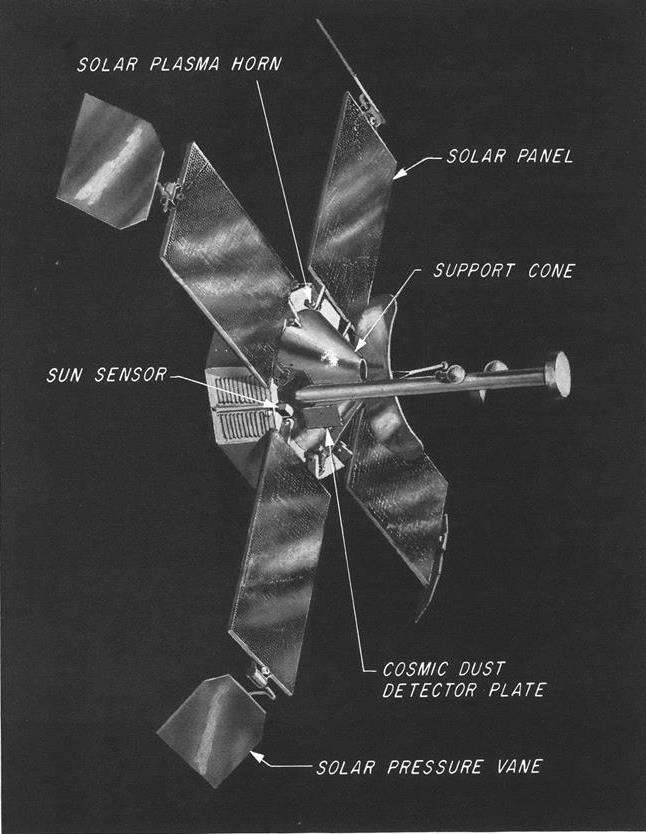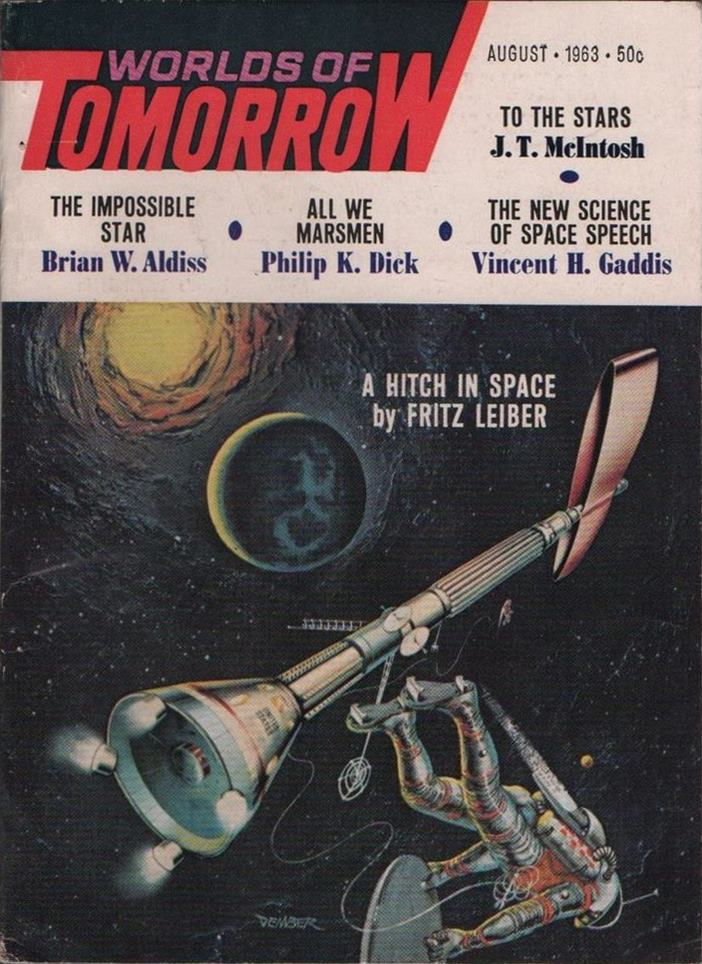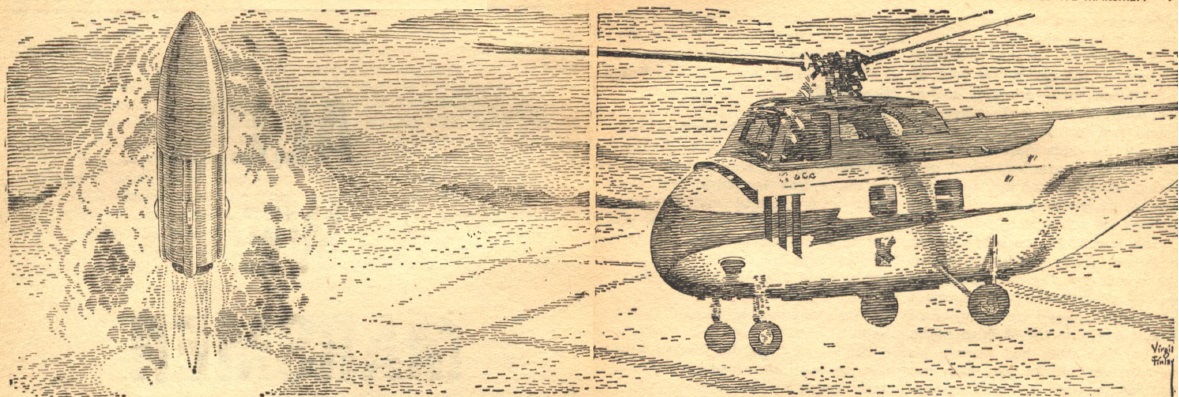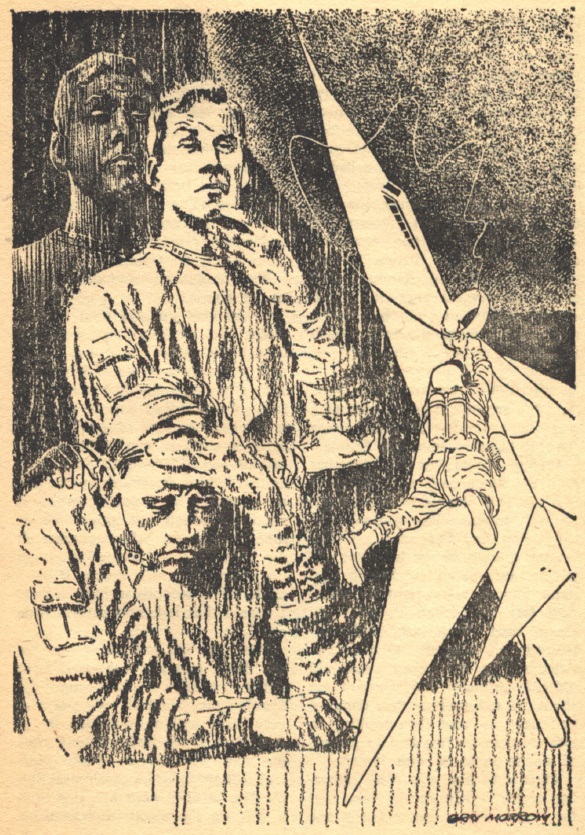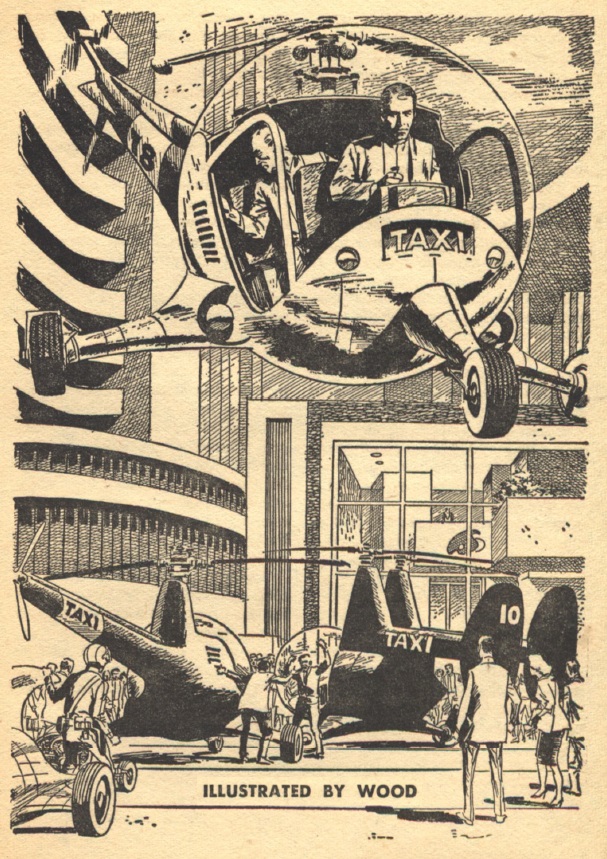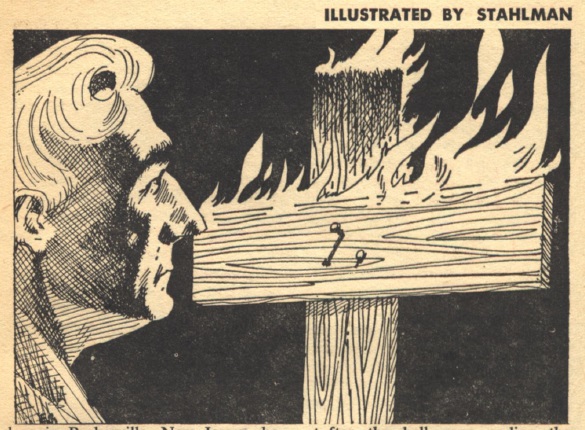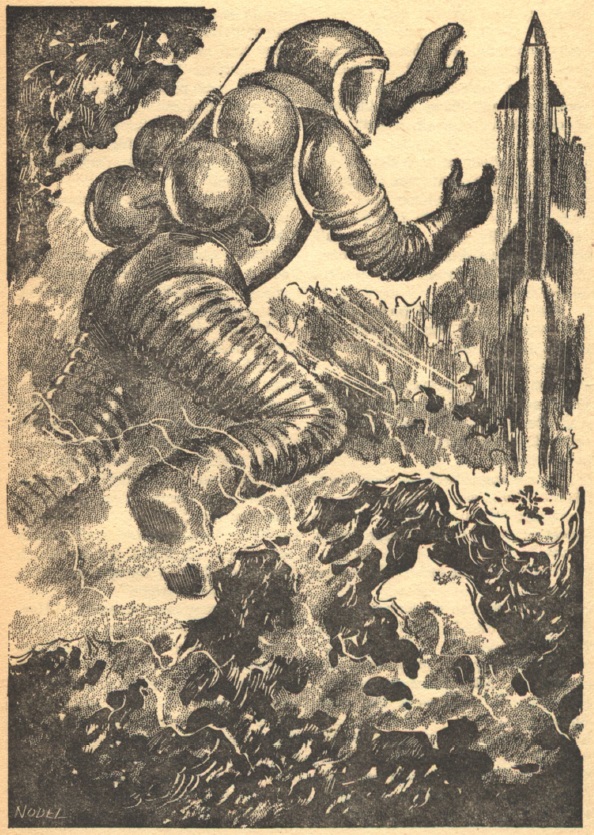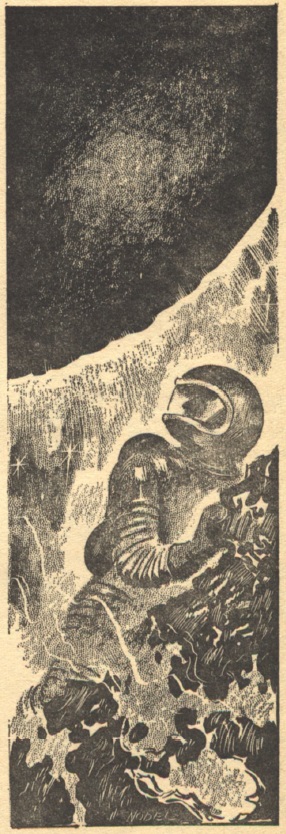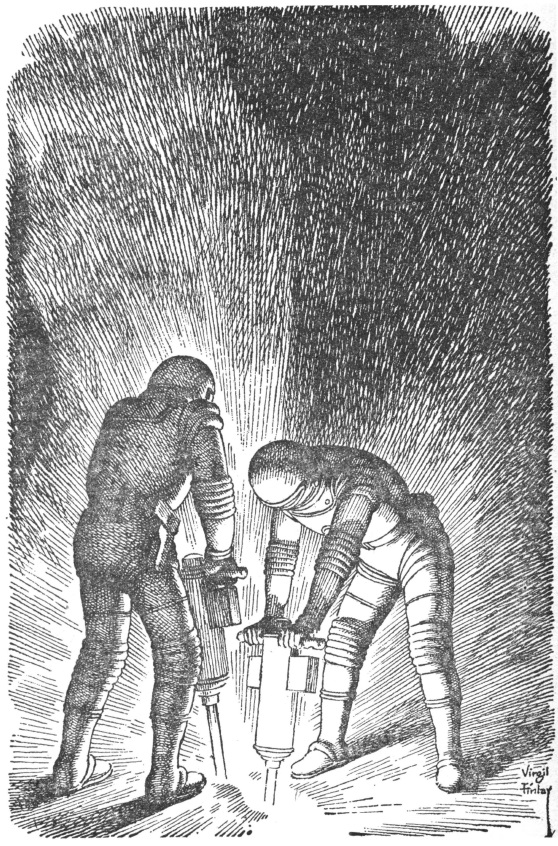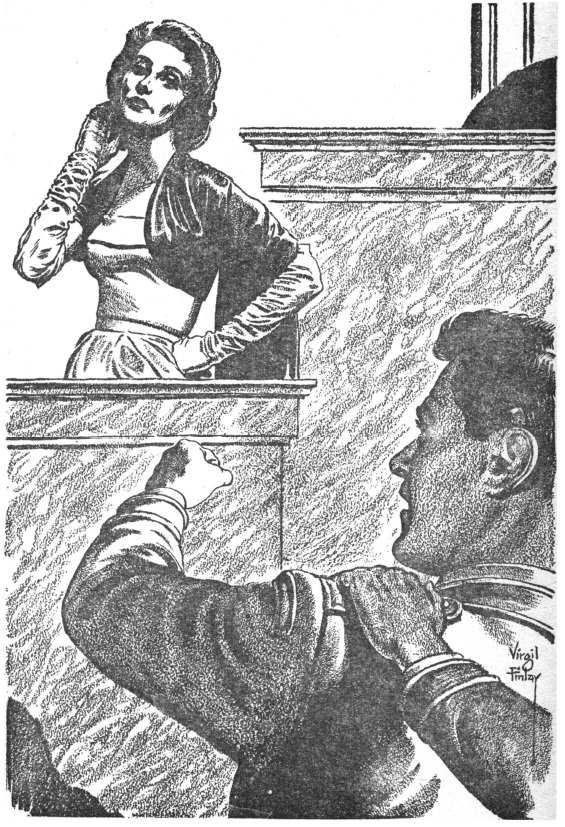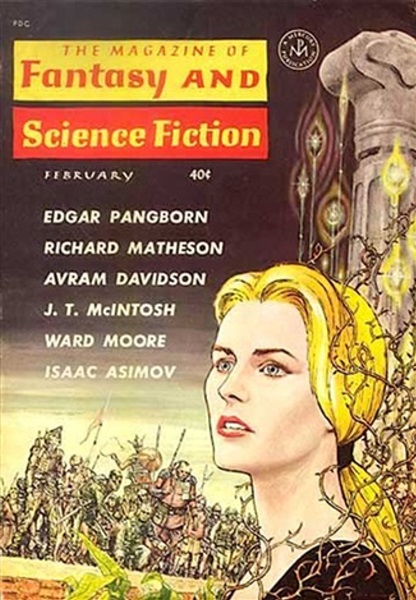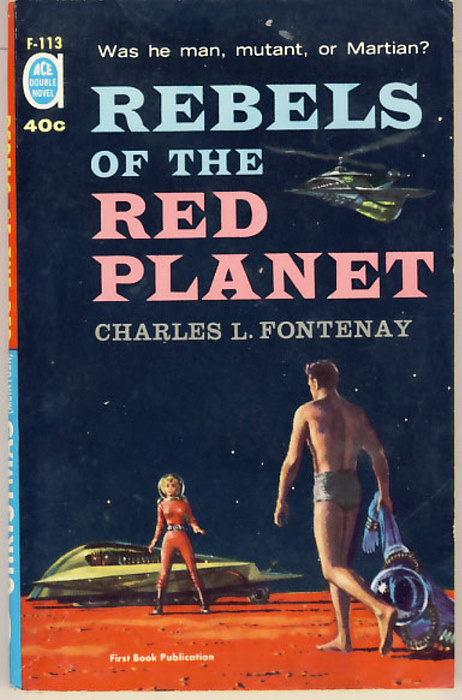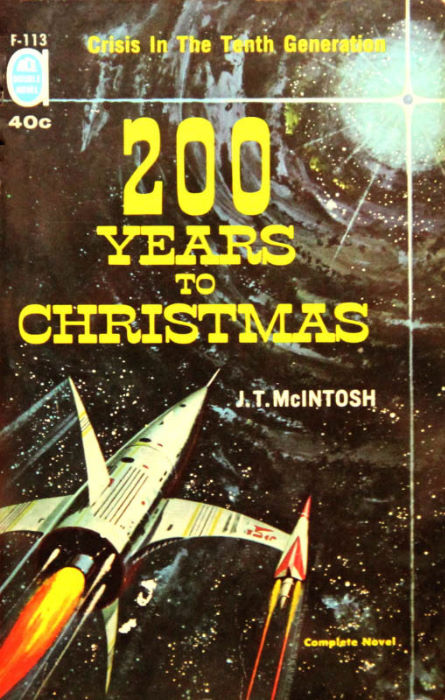
by Gideon Marcus
Lost that Zing
It's tough to get out of a rut. After all, you went through all the trouble of digging the trench in the first place — why expend extra effort getting out of it?
But the fact is, the house that H.L. Gold built in 1950, the superlative Galaxy Science Fiction digest, has gotten pretty stale lately. Sure, the authors are still household names, but the works aren't their best. Maybe Editor Pohl, who succeeded Gold a couple of years ago, is starved for material given that he maintains an industry record of three simultanteous mags. Or perhaps Galaxy just doesn't have the cachet (or the budget to pay authors) of F&SF or Fantastic.
Maybe it's just a slow patch. Anyway, take a gander at the February 1964 Galaxy and see what I mean:
The Issue at Hand

Grandmother Earth, by J. T. McIntosh
It was just a couple of months ago, in Poul Anderson's Conversation in Arcady, that we last saw the a decadent, paradisical Earth visited by more vigorous colonists. McIntosh's variation on the theme features a less happy homeworld, one on which humans have given up for lack of challenge, and the sum population of Earth is reduced to a few tens of thousands stretched along France's idyllic Mediterranean coast. When the last efforts at changing the status quo from within founder, it us up to a pair of extraterrestrial Terrans to come up with a solution.

(I have to wonder if this picture is the main reason the story was accepted…
McIntosh is a pretty good writer, though his best days seem far behind him. The pacing and execution are engaging even if the plot is hackneyed. What really tips the balance from four to three stars is the utterly unnecessary exposition at the end.
Hence: Three stars.
A Bad Day for Vermin, by Keith Laumer
A wormlike alien lands in a small Arkansan town, but before it can open discussions with the citizens, a ramshackle exterminator shoots it dead. A trial ensues to determine whether or not the extraterrestrial counts as a person such that the killer can be tried with murder. Ultimately, the alien is classified as a person and the exterminator, excluded from the definition, is labeled vermin — and exterminated.
Summarized like that, it sounds like a pretty good story. It's not. Unpleasant and preposterous, Laumer must have dashed this one off for a quick buck. Two stars (if that).
Shamar's War, by Kris Neville

When the completely humanoid inhabitants of a another planet refuse Earth's entreaties to formally ally, humanity sends a spy to foment rebellion and install a more friendly government. The aliens are under a dictatorship, you see, and Earth deems them ripe for a bit of Democracy. When efforts to install a formal voting system fail, the aliens come up with a more brute force option: selective boycotting of goods nonessential to life but essential to the economy.
It's hard to believe this piece was written by a veteran author, one who has produced several excellent stories over a career lasting more than a decade. This piece is filled with short, unncompelling sentences; the characterization is nonexistent; and the exposition is endless. The aliens aren't at all, and the solution to the story's puzzle is laughably simplistic. I have to wonder if this wasn't an early piece of work that Neville had stuffed in a desk somewhere and which Pohl accepted out of desperation.
In any event, two stars.
The Early Days of the Metric System, by Willy Ley
Our favorite German rocket scientist had been going through a lackluster period, but this non-fiction article on the origin of standard weights and measures, though in some ways overlapping an old F&SF article by Dr. Asimov, is entertaining and informative. This is the Willy that compelled me to start my subscription to Galaxy umpteen years ago. 5 stars.
Oh, to Be a Blobel!, by Philip K. Dick

Here's another human-sent-to-spy-on-aliens story, except this one takes place after the espionage. It features a young man whose physical form was altered to match that of the invading amorphous Blobels. Though promised to be reconditioned back to human physiognomy, the fellow finds himself reverting to Blobel form half the day, making his life thoroughly miserable.
Luckily for him, the other side had spies, too, and some of them are having similar readjustment trouble. Our hero marries a young female Blobel spy, and all is well…for a while. But feelings of inadequacy (she is smarter and more successful than he) and the hybrid nature of their children cause rifts. Ultimately, the couple must choose between love and individual fortune.
This is a story that shouldn't work, ludicrous as it is in its premise. But it's Dick, and it does.
Four stars.
The Awakening, by Jack Sharkey
Imagine being one of hundreds preserved in suspended animation against a global catastrophe, only to wake up countless ages after the planned date. Your machines are rusted, your elders rotted, and the world you knew has drastically changed. How would you feel? What would you do?
This story belongs in the "Color Me Surprised" department. While the plot of the story is not particularly innovative, the execution is perfect — a sharp increase in quality from Jack Sharkey's usual output.
Four stars.
The Star King, by Jack Vance

In the last installment of The Star King, a fellow named Gersen was tracking down the "Demon Prince," Grendel, one of the Galaxy's most notorious crime bosses. The trail had led Gersen to a university on the civilized world of Alphanor in search of the patron who had commissioned a survey of an Eden-like world far Beyond the edge of civilization. For Gersen had every reason to believe that this patron was Grendel, especially after he killed his surveyor for refusing to reveal the location of the planet.
Part 2 opens Gersen facing several obstacles. Foremost is that Grendel could be any of three professors at the school, all of whom profess ignorance of the murdered surveyor. Then there are Grendel's three lieutenants, all of whom are deadly assassins who want Gersen out of the way. Finally, there is the issue of Pallis Atwrode, an employee of the university who is the first to touch Gersen's heart after a life of nothing but revenge-seeking.
The conclusion to this novel ties all the threads together, throwing all of the characters onto one ship where Gersen can declaim the solution to the mystery, Poirot-style.
The Star King's problem isn't the plot, it's the execution. After a rather gripping first half of the first half, the novel becomes a plodding bore, particularly with the unnecessary encyclopedic inserts every few pages. Vance did such a good job of building a fresh new world in The Dragon Masters (also a Galaxy novel), but he rather flubs it here. Moreover, Vance completely missed his opportunity to give us a real surprise ending, instead deciding on Grendel's identity almost at random, it seems.
Two stars, two and a half for the whole thing.
Summing Up
When I transfer the story data to punch card and run it through my Star-o-Vac, I get a roll of tape with the computation: 3 stars. That doesn't sound so bad, right? Thoroughly adequate compared to some of the other mags we've suffered through lately. But it's the cavalcade of blandness that saps the will over time. It's like a steady diet of matzah. Sure, it gets you out of Egypt, but where's the milk and honey, man?
Cordwainer Smith's in the next issue. Maybe we'll make it to the Holy Land in March…

![[January 8, 1964] A Taste of Homely (February 1964 <i>Galaxy</i>)](https://galacticjourney.org/wp-content/uploads/2019/01/640108cover-570x372.jpg)

![[October 18, 1963] Points of View (December 1963 <i>Worlds of Tomorrow</i>)](https://galacticjourney.org/wp-content/uploads/2018/10/631018cover-485x372.jpg)








